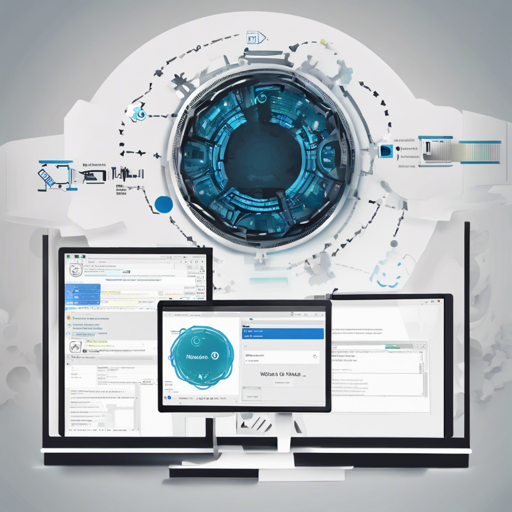If you are eager to dive into the world of artificial intelligence and machine learning, setting up the Automatic1111 Stable Diffusion WebUI can feel like venturing into uncharted waters. Fear not! This guide will smoothly navigate you through the setup process for CUDA and ROCm on NixOS, whether you’re using NVIDIA, AMD GPUs, or even Apple silicon. Grab your metaphorical life jacket, and let’s get underway!
Usage
The journey begins with setup. Follow these easy steps:
Setup
bash
git clone https://github.com/virchau13/automatic1111-webui-nix
git clone https://github.com/AUTOMATIC1111/stable-diffusion-webui
cp automatic1111-webui-nix/*.nix stable-diffusion-webui
cd stable-diffusion-webui
git add *.nix
After you have cloned the necessary repositories, choose the command based on your platform:
Flakes
bash nix develop . #cpu– for CPU or Apple siliconnix develop . #cuda– for CUDAnix develop . #rocm– for ROCm
Non-flakes
nix-shell --argstr variant CPU– for CPUnix-shell --argstr variant CUDA– for CUDAnix-shell --argstr variant ROCM– for ROCm
Launching the WebUI
bash
cd automatic1111-webui-nix
.webui.sh
After this, be sure to follow the tutorials at the original project for setting up Stable Diffusion, GFPGAN, and other relevant components. If your device is battery-powered, you might want to switch to high performance mode for optimal use.
Is This Completely Pure?
It’s essential to understand that this setup provides a Nix shell for bootstrapping the web UI but is not a completely pure flake. The accompanying .webui.sh script will install several Python packages into a virtual environment (venv), ensuring your system remains untouched.
Troubleshooting
While your journey should now be smooth sailing, obstacles may arise. Here are some troubleshooting tips:
- If xformers setup fails, run
.webui.sh --xformers. - In case of an error, consider pulling the latest updates by running
git pullfrom the source repository. - If the problem persists, delete the virtual environment with
rm -r venvand reinstall everything from scratch. This helps in clearing out outdated packages that may linger.
For more insights, updates, or to collaborate on AI development projects, stay connected with fxis.ai.
Credits
The following contributors have made this setup possible:
- AUTOMATIC1111 for foundational contributions.
- rprospero for adding ROCm support.
- Cloudef for CPU compute Apple Silicon support.
- polypoyo for the original draft of this setup.
At fxis.ai, we believe that such advancements are crucial for the future of AI, as they enable more comprehensive and effective solutions. Our team is continually exploring new methodologies to push the envelope in artificial intelligence, ensuring that our clients benefit from the latest technological innovations.
Understanding the Code: An Analogy
Imagine you are preparing a delightful feast. First, you gather the necessary ingredients (repositories) and tools (commands), ensuring you have everything you need before you begin cooking (setting up the environment).
Each step, like choosing whether to sauté or bake (selecting between CPU, CUDA, or ROCm), allows you to adapt to the appliances at your disposal. Finally, launching the web UI is akin to inviting guests for dinner; once they arrive, all preparations culminate in a feast of creativity and functionality!

